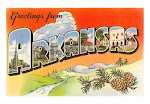POETRY BREAK: REFRAIN-- A poem with a refrain or chorus (and indicate refrain)
Introduction:
It is springtime. Flowers are sprouting, trees are budding and the green grass is growing all around, all around. The children will enjoy chiming in as you read this old favorite folk poem.
And the Green Grass Grew All Around
In the woods there was a hole,
The prettiest hole you ever did see,
Oh, a hole in the woods, a hole in the ground,
Refrain:
And the green grass grew all around,
All Around
And the green grass grew all around.
And in that hole there was a root,
Oh, prettiest root you ever did see,
Root in the hole,
Hole in the ground,
Refrain:
And the green grass grew all around,
All Around
And the green grass grew all around.
And on that root there was a tree,
Oh, prettiest tree you ever did see,
Tree on the root,
Root in the hole,
Hole in the ground,
Refrain:
And the green grass grew all around,
All Around
And the green grass grew all around.
And on that tree there was a branch,
Oh, prettiest branch you ever did see,
Branch on tree,
Tree on root,
Root in the hole,
Hole in the ground,
Refrain:
And the green grass grew all around,
All Around
And the green grass grew all around.
And on that branch there was a nest,
Oh, prettiest nest you ever did see.
Nest on the branch,
Branch on the tree,
Tree on the root,
Root in the hole,
Hole in the ground,
Refrain:
And the green grass grew all around,
All Around
And the green grass grew all around.
And in that nest there was an egg,
Oh prettiest egg you ever did see,
Egg in the nest,
Nest on the branch,
Branch on the tree,
Tree on the root,
Root in the hole,
Hole in the ground,
Refrain:
And the green grass grew all around,
All Around
And the green grass grew all around.
And in that egg there was a bird,
Oh,the prettiest bird you ever did see,
Bird in the egg,
Egg in the nest,
Nest on the branch,
Branch on the tree,
Tree on the root,
Root in the hole,
Hole in the ground,
Refrain:
And the green grass grew all around,
All Around
And the green grass grew all around.
from And the Green Grass Grew All Around; Folk Poetry from Everyone by Alvin Schwartz, illustrated by Sue Truesdell. Harper Collins. 1992.
Extensions:
If internet access and a way to project is in the classroom or library, play the following clip for the children. It sets the poem to music, has colorful animated graphics, and provides text for the children to follow and sing along.
http://www.rif.org/assets/Documents/readingplanet/ReadAloud_Stories/TheGreenGrassGrewAllAround.html*******************************************************
POETRY BOOK REVIEW: NEW BOOK-- A new, favorite book of poetry for children or teens published in or since 2005 (a new favorite of YOURS)
Keepers; Treasure-Hunt Poems by John Frank, Photographs by Ken Robbins. Roaring Book Press. 2008

Introduction:
Do you collect things? Do you like to hunt for treasures? Then you will love this book of poems. Take some time to look at the photographs in the book, then select a poem to read.
Music Box
I twist the box's windup key,
and when I raise the top, I see,
below a plate of beveled glass,
a turning cylinder of brass
with tiny pins that seem to know,
like fingers trained, which of the row
of notes to play - which teeth within
the metal comb to plink. Each pin
awaits its turn so patiently
to help create the melody.
Extensions:
Bring a real music box to show the children. Let them examine the parts, listen to the music, and identify the song it plays.
Ask the children to talk about some of their own treasures or prized possessions and ask how they found them or came by them. Have them write about them.
Invite the children to talk about and/or bring their own treasurers or collections to share. Let them write poems about them.
Hide some "treasures" and let the children hunt for them in the library or classroom.
*******************************************************
POETRY CHOICE: NEWER BOOK-Post a Poetry BREAK with a poem of your choice published in 2008/2009
Introduction:
With warm weather comes the urge to kick off your shoes, take off your socks and bury your feet in the mud. You can almost feel the sun on your face and the earth beneath your feet as you listen to this poem.
Gardening
by
Stefi Weisburd
I plant myself
in flower pose.
In fragrant earth
I burrow toes.
My face tastes sun
and brims with light.
Arms entwine
the trellis tight.
Fingers sprout,
elbows thorn.
Look at me!
A rose is born.
from Barefoot, Poems for Naked Feet by Stefi Weisburd; illustrated by Lori McElrath-Eslick. Wordsong. 2008
Extensions:
Read the poem through a couple of times. Encourage the children to act out the poem, planting themselves like flowers, facea tasting sun, arms entwine, fingers sprout, elbows thorn.
The person in the poem likens himself to a rose. Ask children what kind of flower they would be if they were growing in a garden. What color would they be?
Let the children draw flower pictures or make collages using pictures of flowers from magazines or catalogs, perhaps working together to create a garden mural.
Plant seeds or flowers and watch them grow.
Let the children take their shoes and socks off while they read, write or work at their desks.
Be sure to cite the title, poet, poetry book (with publisher and year) for each poem. Be sure to include an introduction and extension for each poetry break as well. Be sure to cite the poet, book title, illustrator, publisher and year for each poetry book reviewed.





















